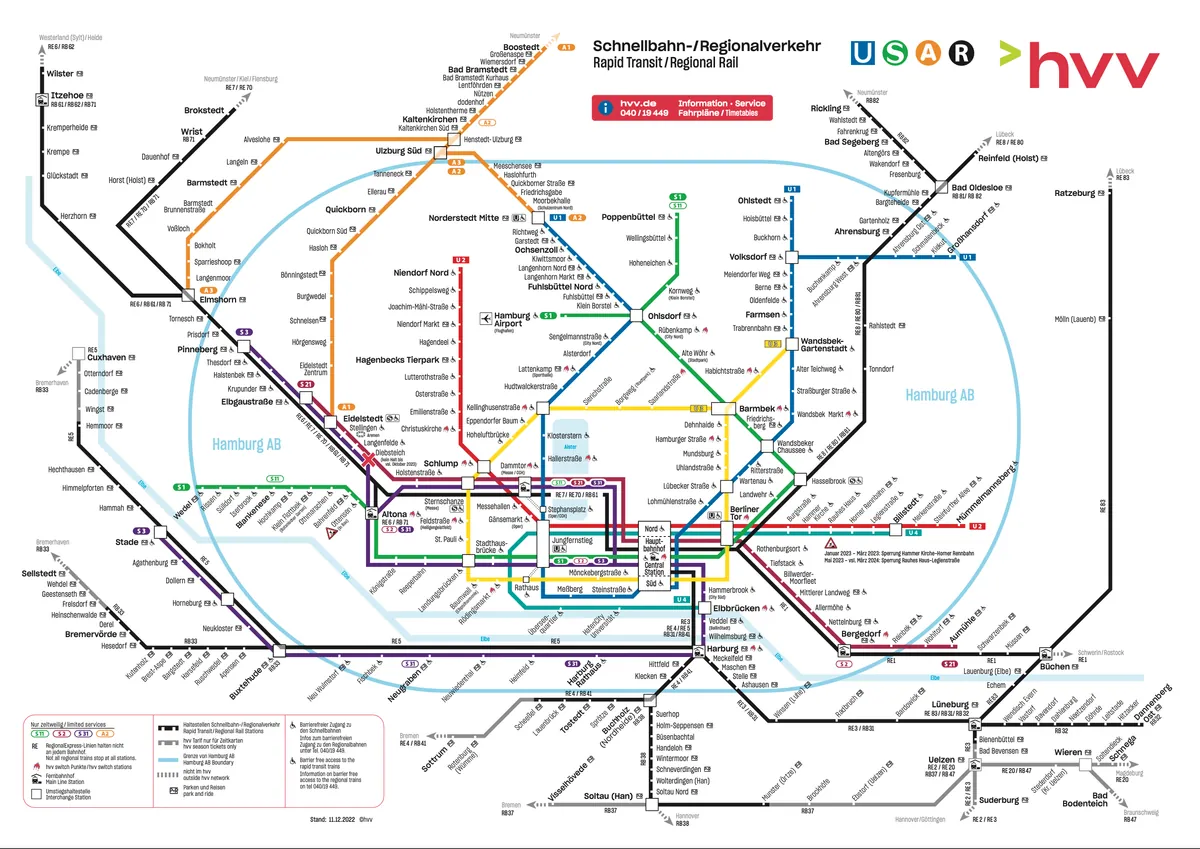Germany's popular nationwide public transportation ticket is set for a significant price adjustment. The Germany Ticket, introduced in May 2023, will see its cost rise from €49 to €58 per month at the beginning of 2025, marking an 18% increase.
Oliver Krischer, the transport minister of North Rhine-Westphalia state, stated:
"With this price, we will manage to keep the ticket attractive and put the financing on a more solid footing."
This price hike comes as German officials aim to balance the ticket's popularity with financial sustainability. The Germany Ticket, which allows unlimited use of local and regional trains, buses, and subway systems across the country, has been a cornerstone of Germany's efforts to promote environmentally friendly transportation.
The ticket's introduction followed a successful three-month experiment in the summer of 2022, where a €9 monthly ticket was offered as part of a government initiative to combat inflation and high fuel prices. While the ultra-low price proved unsustainable, it demonstrated the potential for simplified, nationwide public transport access.
Germany's public transportation system, one of the most extensive in Europe, has a rich history dating back to 1835 when the first railway line opened between Nuremberg and Fürth. Today, the country boasts over 5,400 train stations, more than 300 transport associations, and a diverse network of buses, trams, and subway systems.
The Germany Ticket has garnered significant popularity, with approximately 13 million users in a country of 83 million. This uptake aligns with Germany's ambitious goal to achieve carbon neutrality by 2045, with public transport playing a crucial role in this transition.
However, the ticket's sales have fallen short of expectations, prompting concerns about potential financing shortfalls. Christian Bernreiter, Bavaria's transport minister, emphasized that the price increase was "unavoidable" due to these financial challenges.
The price adjustment reflects the ongoing evolution of Germany's public transport strategy. The country has been at the forefront of innovative transportation solutions, from the introduction of the high-speed ICE network in 1991 to recent experiments with hydrogen-powered trains since 2018.
As Germany continues to invest billions in public transport infrastructure annually, the Germany Ticket represents a significant step towards simplifying a complex system that previously offered myriad regional fare options. This nationwide approach complements local initiatives, such as Berlin's extensive U-Bahn network with 173 stations and Hamburg's historic U-Bahn, the oldest in Germany, operating since 1912.
The Germany Ticket's future success will be crucial in supporting the country's broader sustainable transport ecosystem, which includes over 9,000 km of urban bicycle lanes and more than 40 car-sharing companies. As the ticket evolves, it will continue to play a vital role in Germany's efforts to reduce carbon emissions and enhance mobility for its citizens.
